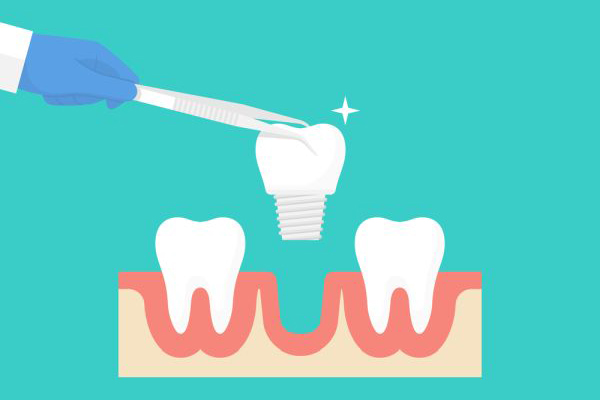Life After A Full Mouth Reconstruction With Dental Implants

Dental implants are one of the options patients can choose to replace missing teeth, during a full mouth reconstruction. Installing dental implants requires an oral surgeon to surgically place the restoration into the patient's jawbone and that takes some time to recover from.
Each patient's recovery time varies based on factors like how well the procedure went, the number of implants inserted into the patient's jaw, how the patient's body reacts to the implant and how well the patient takes care of themselves after the surgery.
Recovery after full mouth reconstruction with dental implants
It is normal to experience some bleeding, soreness, swelling and discomfort after getting implants as part of a full mouth reconstruction. These symptoms can be managed with over-the-counter painkillers and they should subside within five to seven days.
Let us take a closer look at some of the factors that can affect a patient's recovery after getting dental implants:
- The number of implants installed: Generally speaking, the more implants a person gets, the longer their recovery time will be. That means patients who get implant-supported restorations like dentures that require multiple implants for stability will have longer recovery times.
- Sinus lift: Patients who need additional bone tissues around their premolars and molars to support dental implants will have a longer recovery period. It requires the dentist to lift the sinus membrane to add the extra bone tissue.
- Bone grafting: Bone grafting is performed when the patient's jawbone does not have the thickness needed to support dentures. During this procedure, the oral surgeon takes bone tissues from other parts of the patient's body and transfers it to their jawbone. It can also be done using artificial bone tissues. It can take up to three months to recover from bone grafts and the patient needs to be healed before implants can be installed.
- Osseointegration: This is the term for the fusion between an implant and the bone tissues around it. The time it takes to be complete varies for each patient, but the average length for this is about six months.
Recovering after surgery
If everything goes smoothly during the patient's oral surgery, the patient's recovery period will be about a week. The implant will still need more time for osseointegration, but the area around the implant should no longer be sore.
Simple things patients can do to speed up their recovery after the installation of implants include:
- Place gauze around the area that was worked on and bite down on it for the first 30 minutes after getting implants
- Avoid brushing or flossing for the first 48 hours after oral surgery. Use a saltwater solution to clean the mouth
- Get lots of rest
- Use an ice pack to reduce any swelling
- Take painkillers to manage pain and discomfort
- Stick to semi-solid and liquid foods for the first 48 hours after surgery
Once recovery and osseointegration are both complete, the patient can expect to have a healthy mouth. Oral health almost always improves once a full mouth reconstruction is complete. With good oral health also comes an improved appearance.
Replace missing with implants
Want to know more about a full mouth reconstruction with dental implants? Reach out today to get started!
Request an appointment here: https://totalcareimplantdentistry.com or call Total Care Dentistry & Implants at (760) 394-3088 for an appointment in our Palm Desert office.
Check out what others are saying about our services on Yelp: Read our Yelp reviews.
Recent Posts
When people hear the word tooth extraction, they often think of the potential discomfort it may cause. However, a key goal of tooth extraction is quite the opposite. Here is a closer look at tooth extraction and how it helps reduce dental pain.A dentist does not recommend a tooth extraction unless it is necessary. Their…
There are two types of tooth extractions: simple and surgical. Simple extractions are for teeth that are entirely exposed and can be accessed above the gumline. Surgical extractions require an incision into the gumline or connective tissue. The type a patient needs depends on the cause and state of the tooth. Here are six reasons…
Sedation dentistry is a viable option for patients seeking a more relaxed and comfortable experience during dental procedures. Using various sedation techniques, dentists can help alleviate anxiety, minimize discomfort, and ensure that treatments are completed efficiently. This form of dentistry is beneficial for individuals with dental fears, sensitive teeth, or a need for extensive dental…
Tooth extraction can apply to an impacted tooth. This tooth can cause pain and other dental problems. Your dentist may suggest the removal of this tooth after a thorough assessment. Here are the details to consider if your impacted tooth needs extraction.The main goal of dentists is to keep teeth intact. They will only remove…


